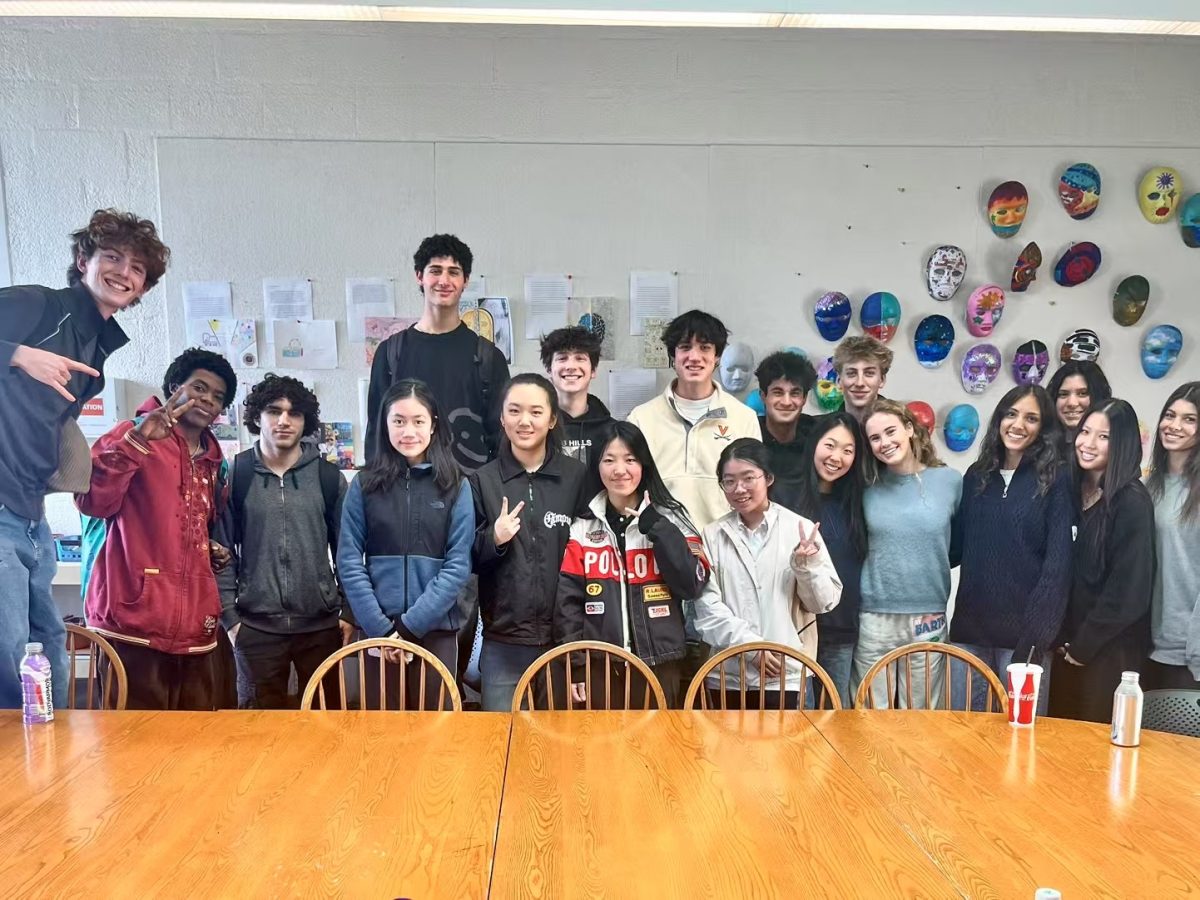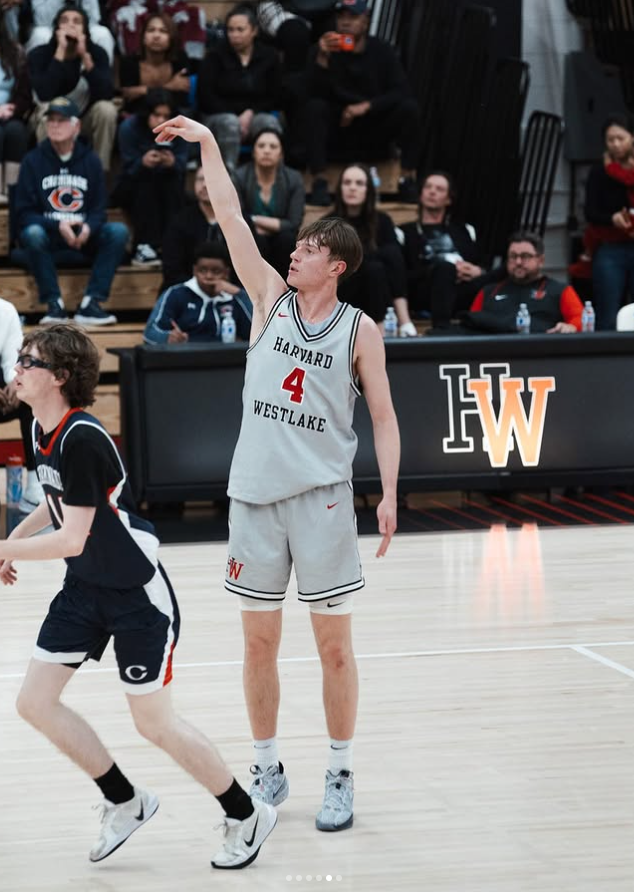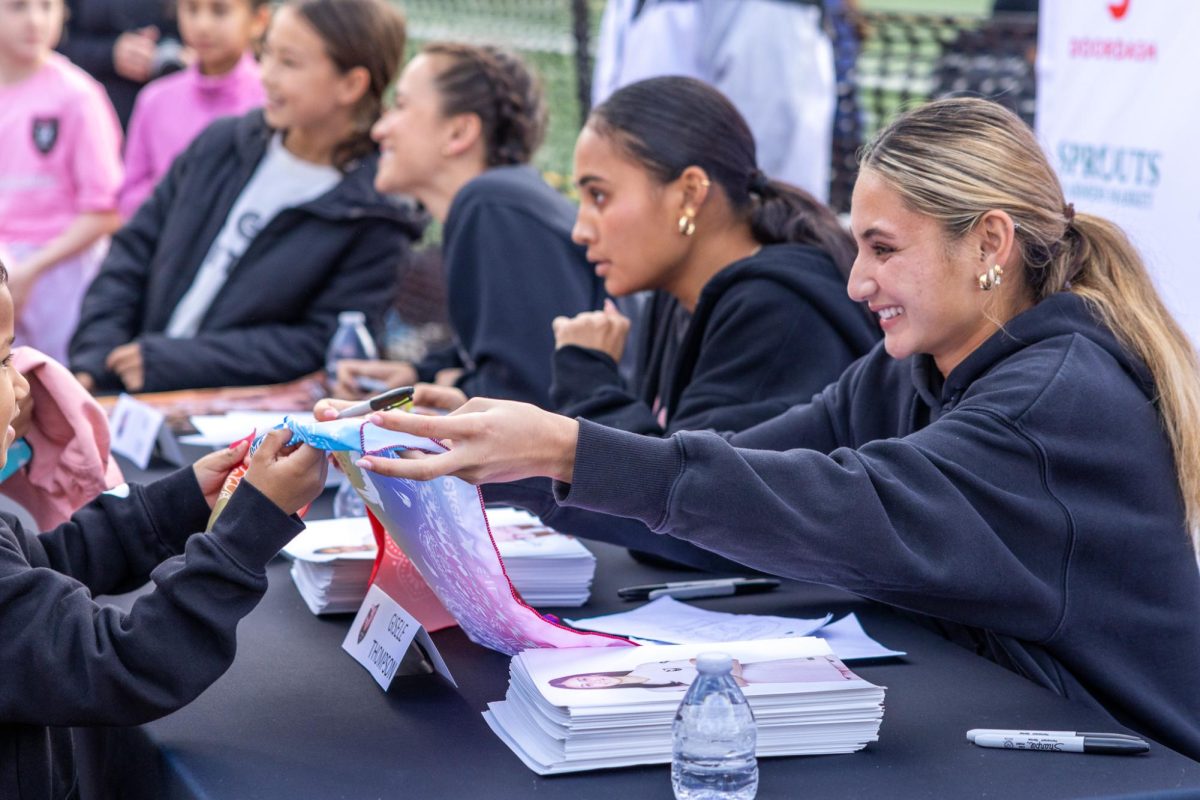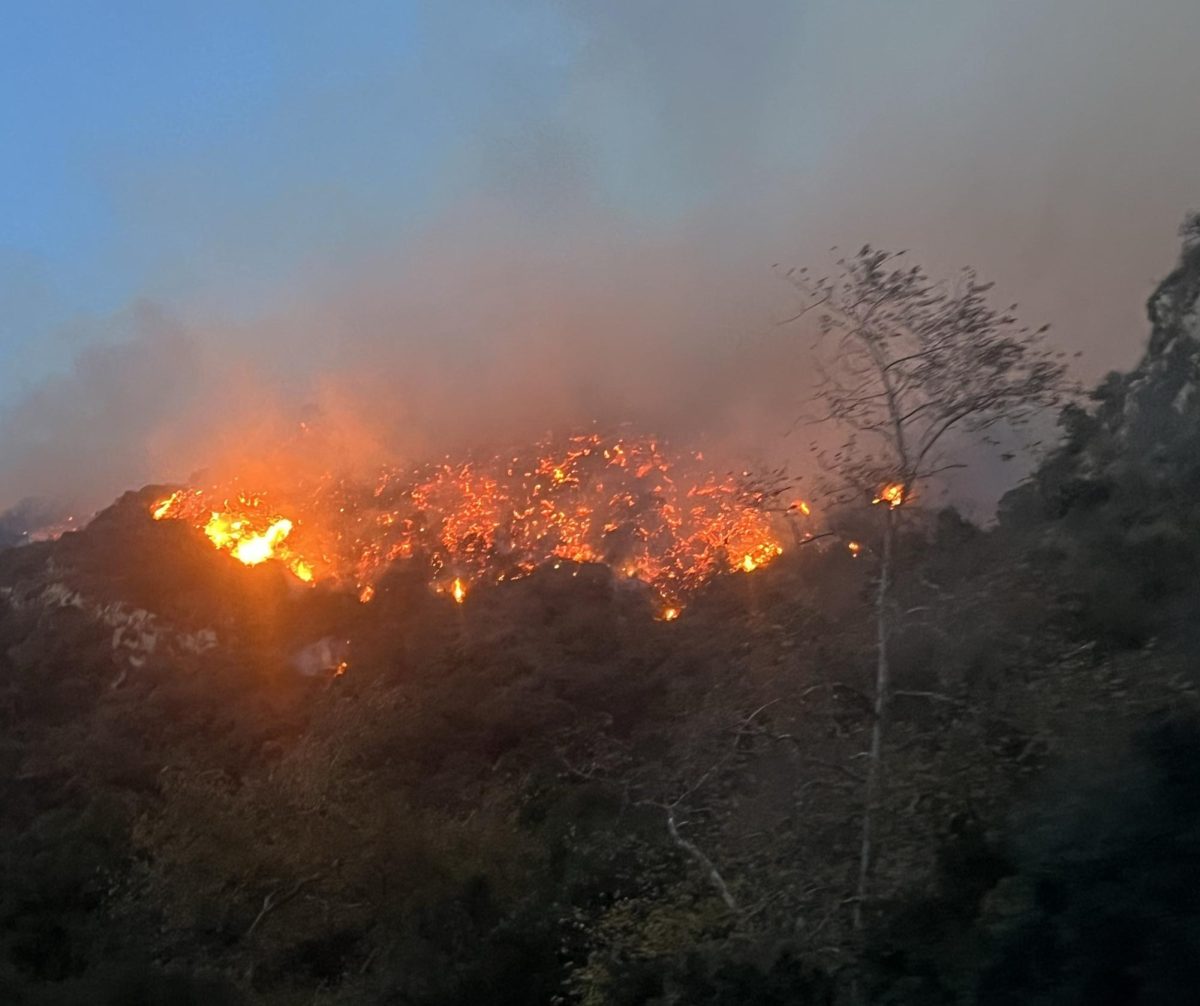Black Panther Party leader, human rights activist and educator Ericka Huggins engaged in conversations with students and faculty about the intersection between the feminist and the civil rights movements and how students can take action against injustices Feb. 24.
The Black Leadership and Culture Club decided to host Huggins to continue the conversations about race and intersectionality Black History Month assembly speaker Glenn Singleton sparked during his speech, according to BLACC leader Taylor Redmond ’18.
“I knew from her vast array of experiences that she would be able to talk about a plethora of relevant and timely topics,” Redmond said. “She is a former leader in the Black Panther Party, educator and feminist, so her range of discussion was wider than most of the speakers we bring to campus.”
Huggins shared anecdotes about how she personally got involved in the Black Panther Party and how Malcolm X and Martin Luther King inspired her to advocate for what she believed in. Huggins said King first introduced her to the Civil Rights Movement during the March on Washington in 1963, after which she vowed to fight for “human” and civil rights.
“I was 15 and I will never ever forget that day,” Huggins said. “I’m standing there among thousands of people, just this girl, with wide eyes watching in awe the people, [who were] so peaceful on that day. Martin Luther King put his life on the line and because of his work and the work of all the men and women around him, we were all gathered there.”
Huggins also emphasized how the disparities between the treatment of male and female activists have conditioned society to ignore the contributions of women.
“It’s another one of those systemic illnesses that we suffer,” Huggins said. “I think that it’s very difficult for young men and older men or young women and older women, especially of color, to step forward in a unified way in predominantly white institutions, but also in institutions that aren’t white because we’ve been socialized to believe I think, and in some instances I know, that women will take care of it. But there’s no fault, there’s no blame, it’s just that we’ve been socialized in the same way, and we can break with that socialization. I have to have hope that we can.”
Following Huggins’ one-on-one conversation with Redmond, the pair asked a series of questions to the audience to help facilitate productive discussions within the community and inspire attendees to take action.
Huggins’ words resonated with audience members, Redmond said, and her experience and demeanor set her apart from other speakers.
“I really appreciated her candor in the conversations because a lot of adults will filter or moderate their thoughts for the sake of younger people so it somewhat limits where the conversation can go,” Redmond said. “Her patience, wisdom, and grace have far surpassed any speaker I’ve worked with in my time at Harvard-Westlake, and I think we can all learn something from that.”




























